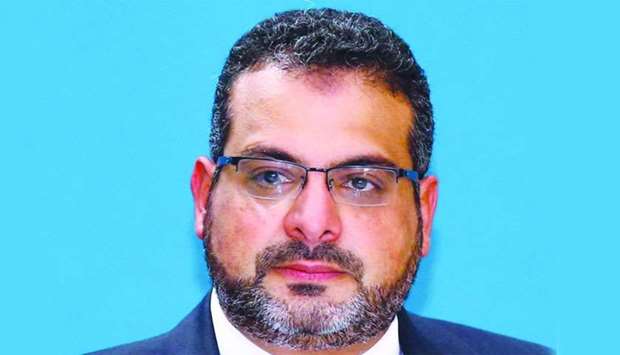The technologies developed by Qatar Computing Research Institute (QCRI) have played a significant role in addressing challenges on the government and individual levels, some of which help pump in millions of riyals into the economy, an official has said.
According to QCRI senior research director Dr Ashraf Aboulnaga, the institute developed technology for data analysis following the June 2017 economic blockade against Qatar.
“Everyone will recall that the blockade began with a cyberattack on Qatar,” Aboulnaga noted during a recent launch event held at the Qatar Science and Technology Park (QSTP) premises.
He stressed that the QCRI has “unique technology” that was used to swiftly analyse large amounts of data to help the government identify the source of the attack.
“Tech is unique because it is developed to process Arabic language – this is the crown jewel of QCRI and can do what no other system can do. Thanks to this system and the world-class expertise at QCRI, we’re now analysing data for a number of entities in government, helping them to stay on guard for any future threats,” Aboulnaga explained.
He stressed that QCRI’s work on cybersecurity paved the way for the newly-established National Cybersecurity Research Lab, making Qatar “a centre of knowledge on cybersecurity,” and is it also equipping the nation to be “best prepared for any threats of this nature.”
Abdoulnaga also noted that the Arabic language processing system used to analyse data during the blockade is registered intellectual property of Qatar and QCRI.
“We’ve used it as a base for other technologies, such as Arabic close captioning system, which is helping large scale TV broadcasters like Al Jazeera do the work of 300 people with just two employees operating an Advanced Transcription System (ATS).
“These high-value technologies and numerous others are commercialised and sold to regional government and private entities, bringing millions of riyals into the economy,” Aboulnaga emphasised.
On an individual level, Aboulnaga said innovations at QCRI also help improve the day-to-day lives of citizens, such as improving health by analysing biological data and medical records to find patterns that can support treatment of diabetes and breast cancer in Qatar.
He said QCRI recently developed technology for the UN to improve disaster response by building situational labs, and it also helped the World Bank understand immigration patterns by analysing social media data.
“All of us are affected by Artificial Intelligence (AI), which is why we have created Qatar Centre for Artificial Intelligence, which is supporting government entities in launching a National AI Strategy,” Aboulnaga said.
On a foundational level, Aboulnaga said QCRI “is planting the seeds for an innovation eco-system that can grow in the future.”
“We are working to make Qatar synonymous with innovation, and that means having intellectual property no one else has. There was a vision for world-class research to take place in Qatar, and this vision has been realised.
“We need to be producers of innovation now, and that is an effort that cannot be led by researchers alone. Research, development, and innovation (RDI) is essential to the country, and we can all support whether by encouraging young people to study STEM, adopting research into our institutions, or investing in RDI,” Aboulnaga added.


